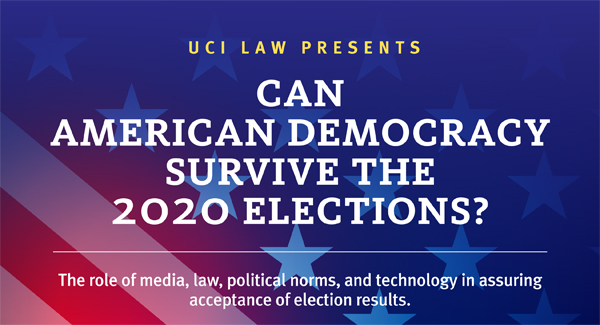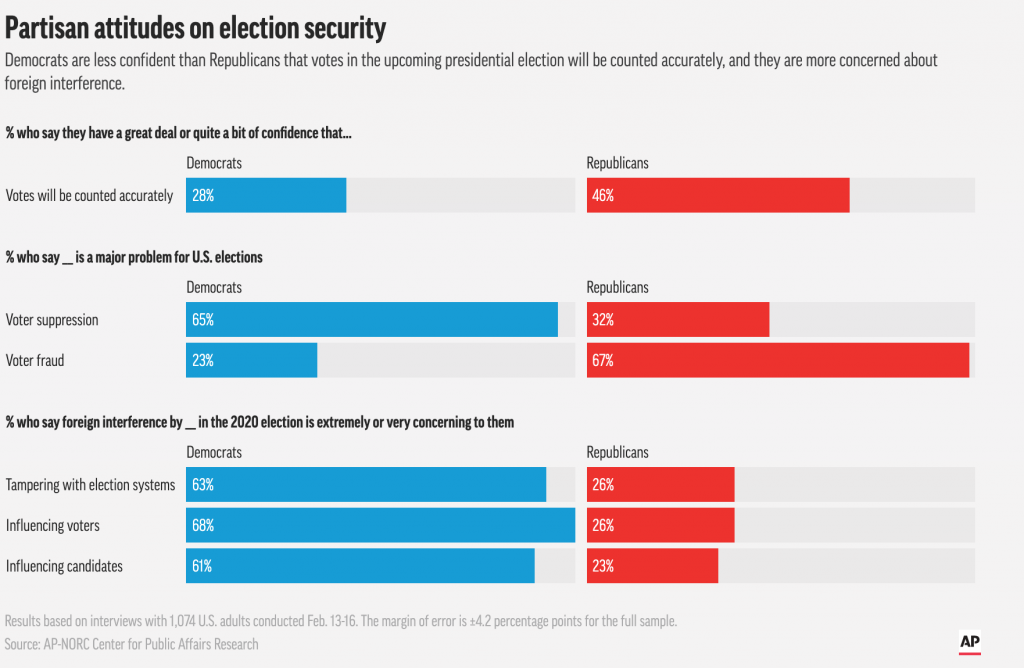I’ll be taking a blogging break as I run this conference tomorrow with an incredible lineup.
Can American Democracy Survive the 2020 Elections?
The role of media, law, political norms, and technology in assuring acceptance of election results.

February 28, 2020
8:15 a.m.–5:00 p.m.
UCI Division of Continuing Education, Yosemite Ballroom
This event is presented in conjunction with the UCI Jack W. Peltason Center for the Study of Democracy and with the generous support of the Democracy Fund, the William and Flora Hewlett Foundation, and the Mertz Gilmore Foundation.
